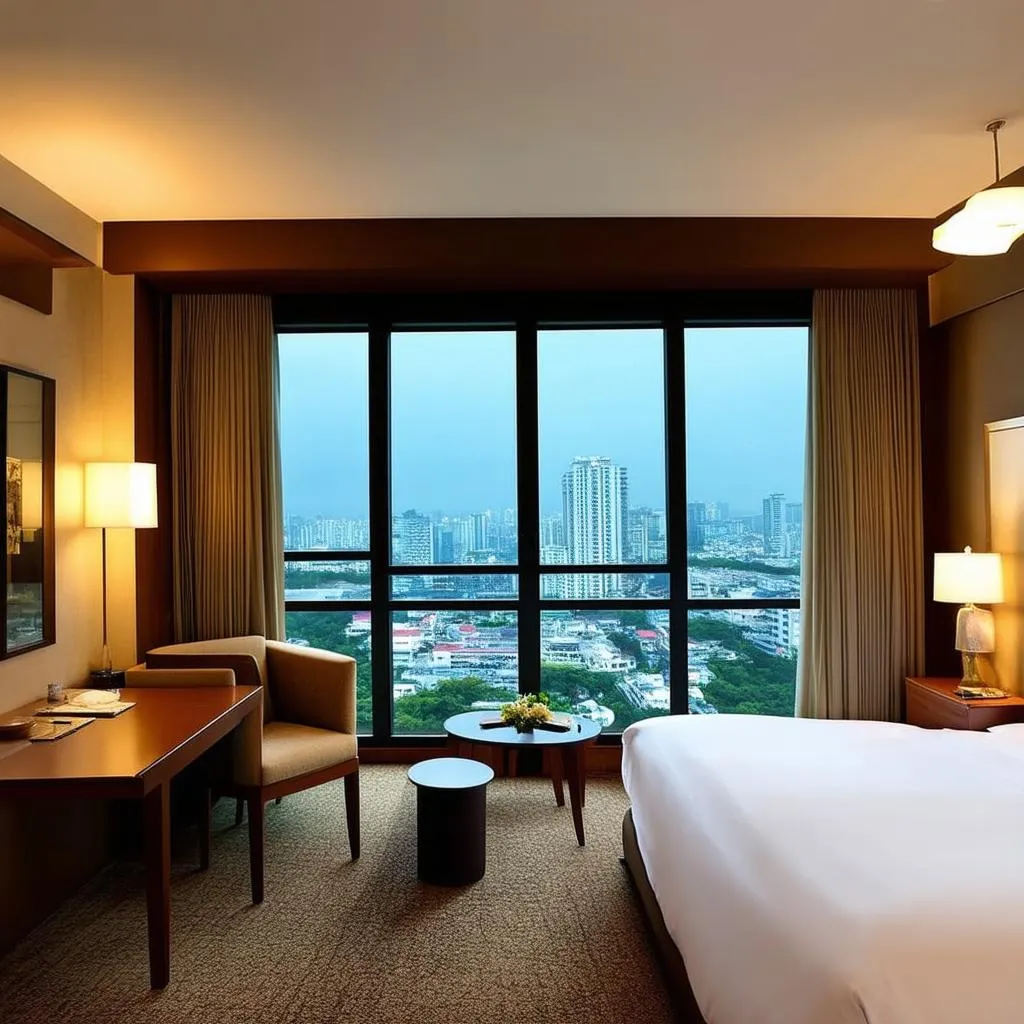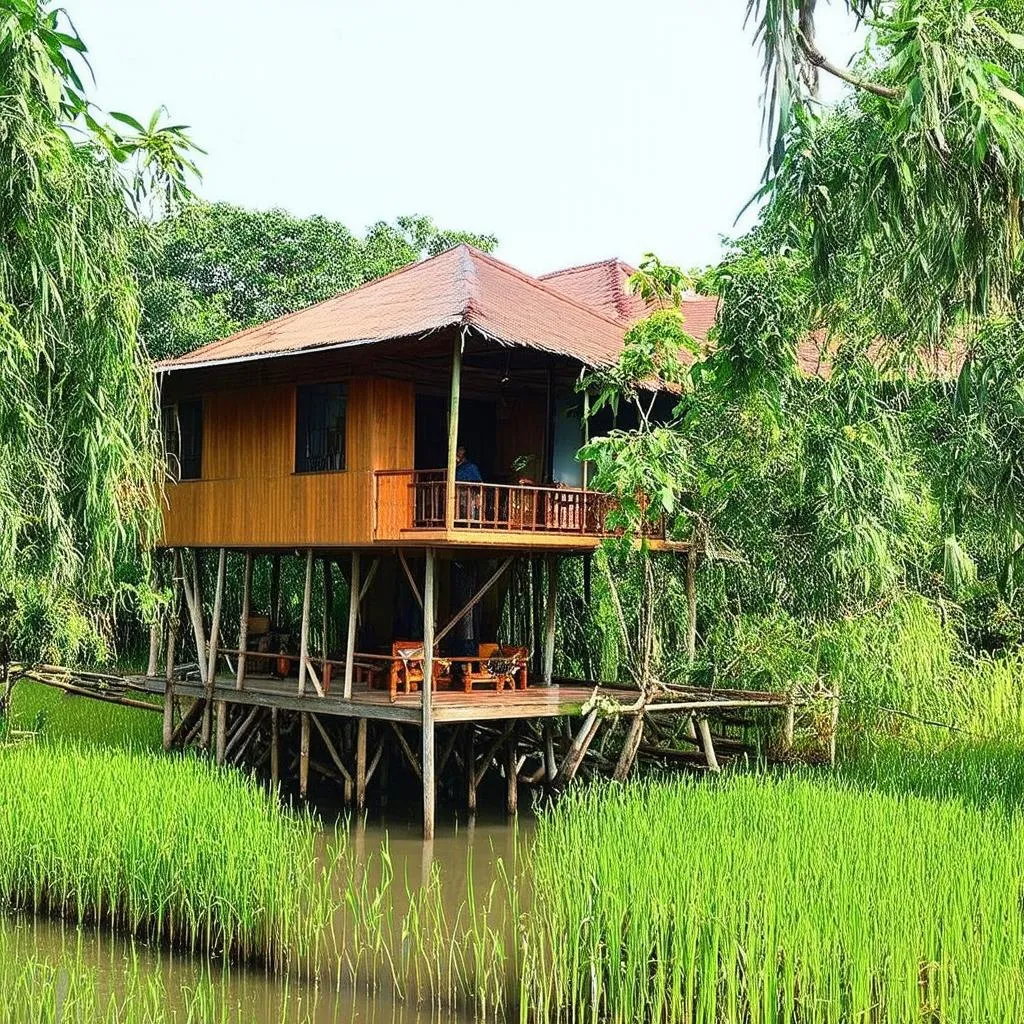Imagine this: you’re strolling down a quaint street in Hoi An, the scent of freshly brewed cà phê sữa đá wafting through the air. The ancient architecture, a vibrant tapestry of Chinese, Japanese, and Vietnamese influences, casts playful shadows in the afternoon sun. As the day fades, you find yourself drawn to a charming guesthouse nestled amidst lush greenery, promising weary travelers a haven of peace and tranquility.
This could be your story. Vietnam’s tourism industry is booming, and with it, the demand for unique and welcoming accommodation options. But before you dive headfirst into this exciting venture, it’s crucial to understand the ins and outs of the legal landscape. What are the essential requirements for running a tourist accommodation business in Vietnam? Let’s unlock the secrets to navigating this dynamic market and turning your hospitality dreams into a flourishing reality.
Navigating the Regulatory Landscape: Key Requirements
Whether you envision a boutique hotel in the heart of Hanoi, a tranquil homestay overlooking the rice paddies of Sapa, or a luxurious resort gracing the pristine beaches of Phu Quoc, understanding the legal framework is paramount.
Business Registration and Licensing: Laying the Foundation
Choosing the Right Business Structure: Determining the legal structure that aligns with your vision is the first crucial step. Options include establishing a limited liability company, a joint-stock company, a partnership, or operating as a sole proprietor. Each structure comes with its own set of advantages, liabilities, and registration procedures. Consulting with a legal expert specializing in Vietnamese business law is highly recommended to make informed decisions from the outset.
Obtaining the Necessary Licenses: Once your business structure is finalized, securing the relevant licenses is non-negotiable. The most crucial one is the International Tourist Business License, a prerequisite for catering to foreign visitors. This license requires meticulous adherence to specific criteria outlined by the Vietnamese government, encompassing aspects like facility standards, safety measures, and service quality.
Ensuring Compliance: Safety, Hygiene, and More
Meeting Safety and Security Standards: The safety and security of your guests are paramount. This encompasses adhering to fire safety regulations, implementing robust security systems, and ensuring your property is structurally sound. Regular inspections and maintenance are crucial, not just for compliance but also for providing your guests with peace of mind.
Maintaining Hygiene and Sanitation Standards: Cleanliness is non-negotiable in the hospitality industry. Maintaining impeccable hygiene standards within your establishment, from guest rooms to common areas, is not just a legal requirement but also a cornerstone of building a positive reputation. This includes adhering to strict protocols for cleaning, waste disposal, and pest control.
Respecting Environmental Regulations: Vietnam’s natural beauty is a major draw for tourists. As a responsible business owner, it’s crucial to minimize your environmental impact. This includes adhering to regulations regarding waste management, water conservation, and energy efficiency.
Financial and Tax Obligations: Staying Ahead of the Game
Meeting Tax Requirements: Like any business, tourist accommodation providers in Vietnam have specific tax obligations. This includes corporate income tax, value-added tax (VAT), and personal income tax for employees. Maintaining transparent financial records and seeking guidance from a qualified accountant specializing in Vietnamese tax law is essential for staying compliant.
Understanding Labor Laws: If you plan to hire staff, familiarizing yourself with Vietnam’s labor laws is crucial. This includes regulations related to minimum wage, working hours, overtime pay, social insurance contributions, and employee contracts. Ensuring fair treatment and compliance with labor regulations is not only ethical but also safeguards your business from potential legal issues.
Crafting Your Unique Selling Proposition: Stand Out in the Crowd
With the legal framework in place, it’s time to let your creativity shine. What will make your accommodation stand out in Vietnam’s competitive market?
Embrace Local Culture: Immerse your guests in the rich tapestry of Vietnamese culture. Offer traditional cooking classes, arrange excursions to local villages, or incorporate regional design elements into your decor.
Prioritize Sustainability: Appeal to environmentally conscious travelers by implementing eco-friendly practices. Use locally sourced materials, minimize waste, and offer sustainable tourism experiences.
Leverage Technology: Enhance the guest experience with technology. Provide high-speed Wi-Fi, implement online booking systems, and offer digital concierge services.
Navigating the Nuances: Tips for Success
Build Relationships: Cultivate strong relationships with local authorities, suppliers, and fellow businesses in the tourism industry. Networking and collaboration can open doors to new opportunities and provide invaluable support.
Embrace Digital Marketing: Harness the power of digital marketing to reach your target audience. Create a compelling website, engage on social media platforms, and leverage online travel agencies (OTAs) to boost visibility.
Seek Expert Guidance: Don’t hesitate to seek professional advice from legal experts, accountants, and business consultants specializing in the Vietnamese market. Their expertise can save you time, money, and potential pitfalls.
 Luxury Hotel Room with Hanoi View
Luxury Hotel Room with Hanoi View
Frequently Asked Questions:
Q: Can foreigners own a tourist accommodation business in Vietnam?
A: Yes, foreigners can own a tourist accommodation business in Vietnam, either independently or through a joint venture with a Vietnamese partner. However, certain restrictions and requirements may apply, depending on the specific business structure and investment capital. Seeking legal counsel is crucial to navigate the complexities of foreign ownership regulations.
Q: What are the typical costs associated with opening a tourist accommodation business in Vietnam?
A: Costs can vary significantly depending on factors like location, size, type of accommodation, and renovation needs. It’s advisable to create a detailed business plan that outlines all anticipated expenses, including licensing fees, property acquisition or rental costs, furnishing and equipment expenses, marketing and advertising budgets, and operational costs.
Q: How can I ensure the authenticity and cultural sensitivity of my tourist accommodation business?
A: Authenticity and cultural sensitivity are paramount for attracting discerning travelers seeking genuine experiences. Consider hiring local staff who can provide insights into Vietnamese culture, customs, and traditions. Incorporate local design elements, offer authentic cuisine, and organize excursions that showcase the true essence of Vietnam.
 Peaceful Homestay in Mekong Delta
Peaceful Homestay in Mekong Delta
Conclusion: Embark on Your Vietnamese Hospitality Journey
Venturing into the world of tourist accommodation in Vietnam is an exciting and rewarding endeavor. By understanding the legal requirements, embracing local culture, and providing exceptional experiences, you can create a thriving business that welcomes travelers from around the globe. Remember, resources like travelcar.edu.vn are here to guide you every step of the way, providing valuable information and insights to help you navigate the dynamic world of Vietnamese tourism.
Ready to turn your hospitality dreams into reality? Share your thoughts, questions, and experiences in the comments below. Let’s connect and inspire each other on this incredible journey.